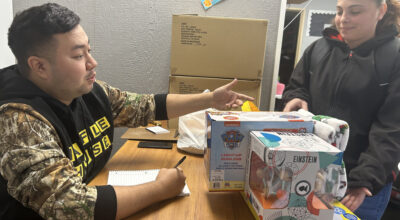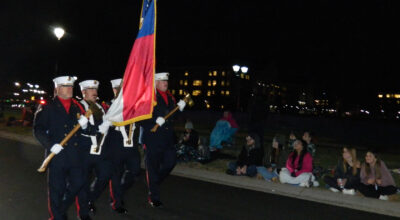Ester Marsh: Are you hydrated?
Published 12:00 am Monday, April 22, 2019
With this crazy weather ranging from very warm to pretty cold this past Saturday, it’s hard and confusing to stay hydrated.
Do you hydrate enough? If you are feeling thirsty, you already are dehydrated.
Hydration is so important, not only during the hot summer months but all year long.
Lean tissue, muscles and organs consist of more than 70% water. It helps carry important nutrients to our cells and carry waste products out of our cells. Water regulates the body’s temperature, and it lubricates the joints. In other words, your body has to have fluids to function well and stay alive.
An easy way to see how much water you should be drinking is to take half your body weight. That is the number of ounces of fluid (preferably water) you need to consume.
With the Easter holiday, alcohol consumption might have been up, and alcohol is a big culprit for dehydration. If you like to drink alcoholic beverages (I like my wine), have a water (in my case, sparkling water) in between each drink to prevent dehydration.
Dehydration occurs when the amount of water leaving the body is greater than the amount taken in. You lose water by sweating (to cool the body) and simply by breathing. I definitely saw my breath this past Saturday evening when I was outside with friends.
The American College of Sports Medicine recommends the following while exercising:
• Drink as much as needed to match sweat loss. About 20 ounces of fluids should be consumed for every pound of body weight lost during exercise.
• Do not rely on your thirst as a reason to drink. Remember, the thirst sensation will only occur after you are already dehydrated, so about 1 to 2 liters already are lost.
• Sweat rates are often 1 to 2 liters per hour, and it is difficult to consume enough fluids to match the losses. You should learn to drink water on a fixed time interval.
• Fluids should be cool and readily available.
Most people are all about weight loss. “Great! I lost 2 pounds during my workout.” That means you need to consume 40 ounces of fluids.
Water weight loss is not true weight loss. By exercising, eating correctly, and hydrating as needed, the true (fat) weight loss will come.
Signs of dehydration and what to do:
• If you feel thirsty, you are already 40 ounces behind. Drink cool, noncarbonated, non-affeinated fluids in intervals. Gulping it down at once will increase gastrointestinal distress.
• Dehydration with loss of energy and performance — drink carbohydrate- and electrolyte-containing sports drinks.
• In the case of dehydration with muscle cramps, immediately stop exercising and massage the cramping muscle while consuming a sports drink that contains sodium, which may relieve the cramp.
The majority of fluids to keep your body hydrated should come from plain water. Unless you exercise excessively for more than an hour and sweat heavily, you do not need many (or any) sports drinks.
Staying hydrated during exercise has multiple benefits:
• Less pronounced increase in heart rate.
• Less pronounced increase in core body temperature.
• Improved cardiac stroke volume and cardiac output (heart is pumping stronger and in greater volumes with one beat).
• Improve skin blood flow, enabling better sweat rates and improved cooling.
• Maintenance of better blood volume.
• A reduction of net muscle glycogen usage, which improves endurance.
I used to be very bad about drinking enough water. I have found I do much better with the sparkling waters and am so happy there are so many different choices now. There is nothing else but “bubbles” in there, but at least I drink enough fluids.
So find what works for you but make sure you stay hydrated.
Ester H. Marsh is health and fitness director of J.F. Hurley Family YMCA.




